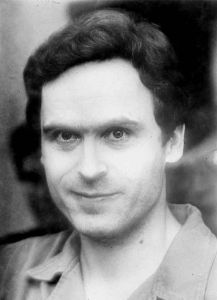Netflix has shown true crime documentaries before by shining a light on cases few people are familiar with, documentaries such as “Making a Murderer,” “Abducted in plain sight” and many more.

Netflix’s latest push into true crime takes a very different approach.
“Conversations With a Killer” focuses on one of the most notorious, sickening and fascinating serial killers of all time. In the process, it serves as a painful reminder that when dealing with a subject this infamous, it’s all the more difficult to bring something new to the table.
“We can’t imagine the reasons for committing such acts, or even putting ourselves in their shoes, we’re consumed with the need to understand why these individuals commit gruesome murders,” Dr. Katie Farina, an assistant criminology professor at Cabrini, said.
The series is inspired by Stephen G. Michaud and Hugh Aynesworth‘s book of the same name, “Ted Bundy: Conversations with a killer,” which was written after the two recorded roughly 100 hours of audio interviews with the imprisoned Bundy.
The recordings were made in hope that they can show the world new insight into the mind of a man responsible for the brutal killings of at least 30 women.
“We can’t understand how a monster like Ted Bundy can live a relatively normal life,” Griffin Shira, a sophomore psychology major said. “These tapes provide a chilling explanation on why a man with a bright future ahead of him could brutally murder and torture women.”
“Conversations With a Killer” takes a traditional, straightforward approach to Bundy’s life. These four episodes cover the entire arc of his story, ranging from his childhood and his multiple killing sprees, to the media circus that was his trial and eventual execution.
Emmy award winning director Joe Berlinger, who is also behind the upcoming Ted Bundy movie starring Zac Efron, set to release this year, mixes interviews with footage and a variety of still images. Michaud and Aynesworth both participate, along with many different law enforcement officials and friends of Bundy.

“Audiences love the gory and gruesome details that this documentary provides,” Nick Matty, a sophomore criminology major said. “Serial killers are on the decline, thankfully, due to the fact that our current forensic skills and techniques are far more advanced than they were 30 years ago.”
Bundy was sentenced in February 1980 and was put to death by the electric chair 30 years ago this year, Jan. 24, 1989 to be exact.
Netflix provides us with the satisfaction of being terrified yet entertained throughout the series, leaving us to wonder how many more people could have been killed if Bundy were not caught?


